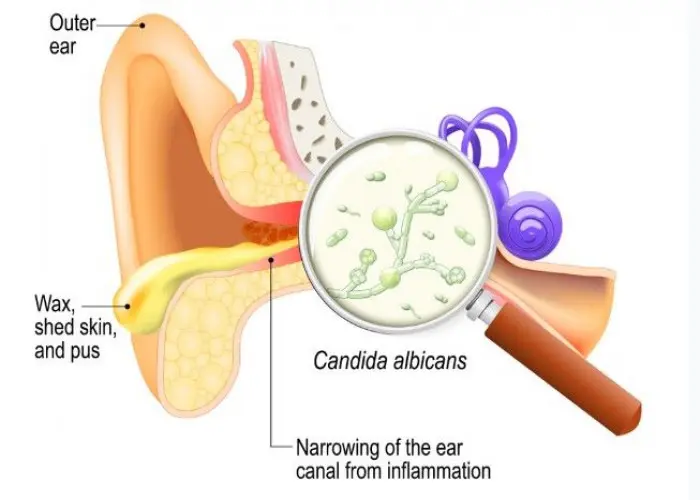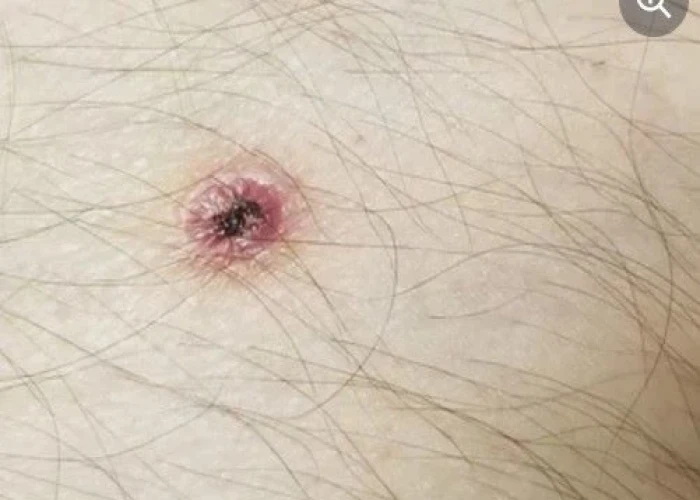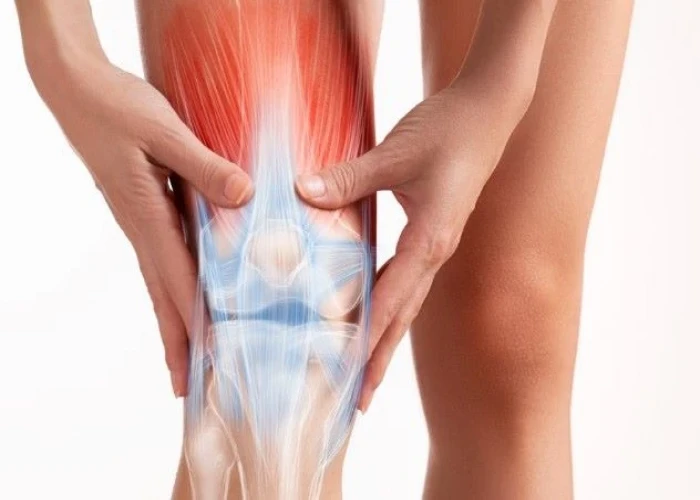 Welcome
Welcome
“May all be happy, may all be healed, may all be at peace and may no one ever suffer."
Swimmer's ear

Swimmer's ear, also known as otitis externa, is an infection of the outer ear canal that can occur when water becomes trapped in the ear after swimming or bathing. The moist environment inside the ear canal can promote the growth of bacteria or fungi, leading to infection and inflammation.
The symptoms of swimmer's ear typically include:
- Ear pain that worsens when the earlobe is pulled or when pressure is applied to the ear
- Itching in the ear canal
- Redness and swelling in the ear
- Drainage of pus or fluid from the ear
- Hearing loss or muffled hearing
In some cases, a swimmer's ear can be prevented by keeping the ears dry and clean, using earplugs or a swim cap, and avoiding inserting objects into the ear canal. Treatment for swimmer's ear typically involves antibiotics to treat the infection, as well as pain relievers to manage discomfort. Ear drops may also be used to help dry out the ear canal and reduce inflammation.
It is important to see a healthcare professional if you are experiencing symptoms of a swimmer's ear, as the infection can spread and lead to more serious complications if left untreated.
Research Papers
Disease Signs and Symptoms
- Itching
- Ear pain
- Ear pus
- Fever
- Swollen neck
- Swollen lymph nodes
- Severe pain that might radiate to face, neck or side of head
Disease Causes
Swimmer's ear
Swimmer's ear is an infection that's usually caused by bacteria. It's less common for a fungus or virus to cause swimmer's ear.
Your ear's natural defenses
Your outer ear canals have natural defenses that help keep them clean and prevent infection. Protective features include:
- A thin, water-repellent, slightly acidic film lines the ear canal and discourages bacterial growth. Earwax (cerumen) is an accumulation of this waxy film, dead skin cells and other debris that travels to the opening of the ear canal to keep it clean.
- The outer ear, particularly around the opening of the ear canal, helps prevent foreign bodies from entering.
How the infection occurs
If you have swimmer's ear, your natural defenses have been overwhelmed. The conditions that often play a role in infection include:
- Moisture in the ear canal that creates an ideal environment for bacterial growth
- Exposure to contaminated water
- Damage to the sensitive skin of the ear canal that creates an opening for infection
Disease Prevents
Swimmer's ear
Follow these tips to avoid swimmer's ear:
- Keep your ears dry. After swimming or bathing, tip your head to the side to help water drain from your ear canal. Dry only your outer ear, wiping it gently with a soft towel. You can safely dry your outer ear canal with a blow-dryer if you put it on the lowest setting and hold it at least a foot (about 0.3 meters) away from the ear.
- At-home preventive treatment. If you know you don't have a punctured eardrum, you can use homemade preventive eardrops of 1 part white vinegar to 1 part rubbing alcohol. This solution promotes drying and helps prevent the growth of bacteria and fungi. Before and after swimming, pour 1 teaspoon (about 5 milliliters) of the solution into each ear and let it drain back out. Similar over-the-counter solutions might be available at your drugstore.
- Swim wisely. Don't swim in lakes or rivers on days when warnings of high bacteria counts are posted.
- Protect your ears while swimming. Wear earplugs or a swimming cap while swimming to keep your ears dry.
- Protect your ears from irritants. Put cotton balls in your ears while applying products such as hair sprays and hair dyes.
- Use caution after an ear infection or surgery. If you've recently had an ear infection or ear surgery, talk to your doctor before swimming.
- Avoid putting foreign objects in your ear. Never attempt to scratch an itch or dig out earwax with items such as a cotton swab, paper clip or hairpin. Using these items can pack material deeper into your ear canal, irritate the thin skin inside your ear or break the skin.
Disease Treatments
The goal of treatment is to stop the infection and allow your ear canal to heal.
Cleaning
Cleaning your outer ear canal is necessary to help eardrops flow to all infected areas. Your doctor will use a suction device or ear curette to clean away discharge, clumps of earwax, flaky skin and other debris.
Medications for infection
For most cases of swimmer's ear, your doctor will prescribe eardrops that have some combination of the following ingredients, depending on the type and seriousness of your infection:
- Acidic solution to help restore your ear's normal antibacterial environment
- Steroid to reduce inflammation
- Antibiotic to fight bacteria
- Antifungal medication to fight infection caused by a fungus
Ask your doctor about the best method for taking your eardrops. Some ideas that may help you use eardrops include the following:
- Reduce the discomfort of cool drops by holding the bottle in your hand for a few minutes to bring the temperature of the drops closer to body temperature.
- Lie on your side with your infected ear up for a few minutes to help medication travel through the full length of your ear canal.
- If possible, have someone help you put the drops in your ear.
- To put drops in a child's or adult's ear, pull the ear up and back.
If your ear canal is completely blocked by swelling, inflammation or excess discharge, your doctor might insert a wick made of cotton or gauze to promote drainage and help draw medication into your ear canal.
If your infection is more advanced or doesn't respond to treatment with eardrops, your doctor might prescribe oral antibiotics.
Medications for pain
Your doctor might recommend easing the discomfort of swimmer's ear with over-the-counter pain relievers, such as ibuprofen (Advil, Motrin IB, others), naproxen sodium (Aleve) or acetaminophen (Tylenol, others).
If your pain is severe or your swimmer's ear is more advanced, your doctor might prescribe a stronger medication for pain relief.
Helping your treatment work
During treatment, do the following to help keep your ears dry and avoid further irritation:
- Don't swim or go scuba diving.
- Don't wear an earplug, a hearing aid or earbuds before pain or discharge has stopped.
- Avoid getting water in your ear canal when showering or bathing. Use a cotton ball coated with petroleum jelly to protect your ear during a shower or bath.
Disease Diagnoses
Disease Allopathic Generics
Disease Ayurvedic Generics
Disease Homeopathic Generics
Disease yoga
Swimmer's ear and Learn More about Diseases

Kyphosis

Acute kidney failure

Pyoderma gangrenosum

Prostate cancer

Undifferentiated pleomorphic sarcoma

Krabbe disease

Pet allergy

Knee pain
swimmer's ear, সাঁতারুর কান
To be happy, beautiful, healthy, wealthy, hale and long-lived stay with DM3S.
